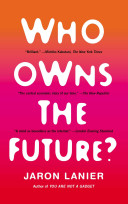New Money is Created with Promises
Ordinary people can help create new money by making promises. You constrain the future by making a plan, and a promise to keep to it. Money is created in response, because in making that promise you have created value. New money is created to represent that value. This is why it is possible for banks to fall apart when people don’t pay their mortgages back. Banks sell assets that are partially made of the future intents of borrowers. When borrowers do something other than promised, those assets no longer exist. An economy is like a cosmology. An expanding market, like an expanding universe, has unique laws and local phenomena. Growth is necessary in a healthy market, and it doesn’t have to come at the expense of the environment or other precious things we hold in common. Growth is merely honest if the goodwill of ordinary people is to be acknowledged instead of forgotten. That means a little inflation—not too much—is proper, as people get better at doing things in ways that are acknowledged to be good for one another.* This is such a basic idea that it can be hard to see.
Notes:
Promises of the future grow the economy and create new wealth, making the economy an expanding universe.
Folksonomies: economics society good will
Taxonomies:
/business and industrial/company/merger and acquisition (0.577048)
/business and industrial (0.569481)
/finance/personal finance/lending/student loans (0.490346)
Keywords:
new money (0.928661 (positive:0.325159)), ordinary people (0.744066 (negative:-0.360890)), Promises Promises (0.586399 (positive:0.425644)), future grow (0.493660 (positive:0.425644)), new wealth (0.488065 (positive:0.425644)), future intents (0.476555 (negative:-0.292582)), local phenomena (0.468740 (positive:0.305674)), unique laws (0.466460 (positive:0.305674)), little inflation—not (0.466302 (neutral:0.000000)), basic idea (0.464276 (positive:0.339902)), precious things (0.446632 (negative:-0.324013)), healthy market (0.445705 (positive:0.552816)), economy (0.433092 (positive:0.410993)), borrowers (0.370739 (negative:-0.377508)), assets (0.345505 (negative:-0.321169)), banks (0.338286 (negative:-0.545099)), value (0.330519 (positive:0.224674)), universe (0.329850 (positive:0.461137)), Growth (0.307423 (positive:0.191926)), goodwill (0.268509 (negative:-0.360890)), plan (0.264008 (neutral:0.000000)), cosmology (0.263769 (neutral:0.000000)), mortgages (0.263553 (negative:-0.797616)), response (0.261799 (neutral:0.000000)), expense (0.260876 (negative:-0.324013)), ways (0.255613 (positive:0.339902))
Concepts:
Promise (0.931365): dbpedia | freebase
Investment (0.871785): dbpedia | freebase | opencyc
Physical cosmology (0.818662): dbpedia | freebase
Universe (0.803542): dbpedia | freebase
Time (0.802790): dbpedia | freebase | opencyc
Economics (0.782195): dbpedia | freebase | opencyc
Metric expansion of space (0.731702): dbpedia | freebase
General relativity (0.724813): dbpedia | freebase | opencyc





